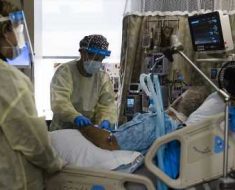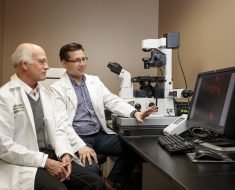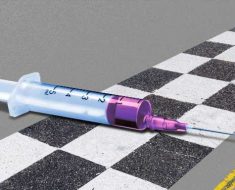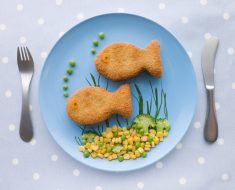Strong Women is a weekly series that champions diversity in sport and fitness.
Too often we are told – in the media and in advertising campaigns – that a woman has to look a certain way in order to be fit, healthy and love her body.
But we know this isn’t true and we want to normalise the idea that fitness is for women of any age, race size or ability.
A Sport England study found that 75% of women are put off from physical activity altogether because of a fear of judgement – and this is what we want to change.
Dame Sarah Storey is the most successful female British Paralympian of all time. She holds fourteen gold medals and is a 29-time World champion with medals in both swimming and cycling.
Now the Mancunian athlete is working to improve disability sport for the next generation – she wants to make it easier for everyone to experience the sheer joy that cycling has given her over the years.
What do you love about cycling?
I love the freedom of cycling and how healthy it makes you feel when the air is on your face.
It’s an activity that is open and accessible for everyone to enjoy.
Whether riding to school, to meet friends, heading to the cafe or racing – cycling helps you find the best version of yourself. There’s a way for everyone to be involved.
What challenges have you faced as a disabled cyclist?
When I got in to cycling I wanted my physical capability to be assessed against the best women in the world.
The difference between us is technical, because I have a lack of balance and control in comparison. The challenge for me is all about that technical part.
Being able to cope with both brakes on one lever and all the gears on the right side.
In a particularly wet race, I struggle to stop the rear brake locking up, and in a windy race it’s a challenge just to hold on. To gain stability I push in to the left side of the bars with my left arm but the knock-on effect is that the bars are unbalanced.

It’s difficult to quantify the effect these technical differences have, but that’s part of the challenge, finding ways to just get on with it.
Why do you think of yourself as a strong woman?
I’m not sure if I see myself as a strong woman or if I just feel empowered because of the support that I have.
I think strength is both physical and mental, but for me I am stronger for the support I have around me.
My husband and my parents are my biggest advocates for the driven approach I adopt and they encourage me to explore opportunities and give back to others.
I’m stronger for becoming a mum, as well as stronger after the setbacks I’ve suffered too.
I don’t think I’m different to the next person though, we are all strong in different ways. The challenge is often finding that strength and using it to improve your own path and that of others.
How easy is it for disabled women to get in to sport?
It’s fantastic that there is now a number of talent programmes around that make it easier than ever to get in to disability sport.
Organisations such as UK Sport, have programmes in place to scout for new talent but they tend to be track focused as it’s a more controllable and quantifiable discipline.
Road racing in the UK is very under-developed for disabled women; in the future I would like to see significant improvement in that part of the sport.
It’s all about having a go!
My advice would be to find a club and integrate in to the sport at the entry level.
Certain disciplines are harder for people with higher levels of impairment but, for example, in cycling there are non-disabled Trike riders and clubs with access to knowledgeable people.
Local bike shops are also a great source of information and support, and will help find the right set up to support an athlete who needs an adaptation.
What has been the stand-out moment of your career?
It’s really hard to pick one, but I think having my daughter Louisa with me at the Paralympics in Rio made it extra special.
And, of course, winning gold on my debut as a 14-year-old, because without that, the rest wouldn’t have been possible.
Most athletes dream of a home Games too, so winning four gold medals in front of a home crowd also ranks highly!
Tell us about the SKODA DSI Cycling Academy
This year I’ve partnered with ŠKODA to launch their new DSI Cycling Academy; an exclusive cycling programme that is all about giving female cyclists a path to help them become a fully-fledged professional racer in the future.
It’s a hugely important initiative because women’s sport is still under-developed in comparison to the male racers in terms of opportunities, coverage and recognition.
I am committed to doing everything I can to help plug that gap and promote an equal footing for both sexes in the sport.
The ŠKODA Academy aims to give riders the knowledge and training to propel them forward and hopefully see them sign a professional contract in their future.
We will mentor them and help them learn about all aspects of the sport such as professional racing etiquette, race tactics, nutrition and managing their sports career.
The Academy is a positive step forward to give female amateur riders new opportunities to become an elite cyclist.
Dame Sarah Storey has teamed up with ŠKODA to launch the ŠKODA DSI Cycling Academy; a programme exclusively for female riders aspiring to compete professionally.
Source: Read Full Article





